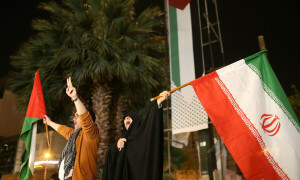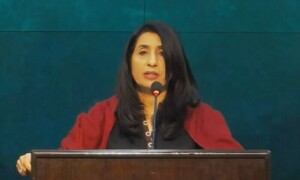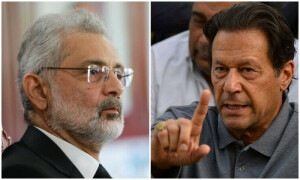DESPITE a frayed relationship with the IMF, Pakistan has successfully raised $1 billion from international capital markets via a bond issue that took most people by surprise. The surprise was on a number of counts. First the issue happened very fast, second that participation was quite good, and third that the rates the country got were lower than what the April issue fetched.
Some of this is explained by the fact that global markets are flush with liquidity at this point, and despite Pakistan’s story taking a hit among global lenders due to the limbo in the IMF programme, it is still not a bad enough story to keep them away altogether, given there is more money than options around the world these days. And even with relations with the Fund being frayed, the government seems to have successfully sent out a message to international creditors that in time they will sort this out, given Pakistan’s rising geopolitical importance after America’s exit from Afghanistan. With few options and credible messaging on forthcoming support, the country seems to have been able to hold its own in international capital markets. For now, anyway.
The big prize is still resumption of the Fund programme, which has been in some sort of limbo since the incomplete review after the budget. The government has till August or perhaps early September to demonstrate the muscle behind its confidence, but if there should be another review left inconclusive at that time its external financing plan for the budget will be hanging in the balance.
One wild card in play at the moment is the SDR expansion plan the IMF board just approved. The plan sees an almost $650bn increase in IMF reserves that are to be distributed among member countries. Estimates of how much Pakistan will get under this plan, which is not based on any conditionality, range between $2bn and $2.8bn, though it’s hard to get an exact amount. If all goes smoothly, as it is likely to given the plan has broad buy in from all member countries, the disbursement could come around August. So with another inflow of that size in the first quarter of the fiscal year, the government should be set to ride it out for a few more months.
The situation is precarious, even though there are glimmers of hope shining through the cracks in some places.
One caveat at play in that allocation is that the US Treasury department has said that it “retains the right to refuse to purchase SDRs from any country whose policies run counter to US interests”. Recall here that the SDR is a reserve currency used exclusively by central banks and is made up of a basket consisting of dollars, euros, yen, pound sterling and the Chinese yuan. It is more likely that this prerogative will be applied to countries that are in a hostile relationship with the US rather than Pakistan, but it is still worth keeping in mind that there is a likelihood, however remote, that this allocation may not end up being as liquid as the authorities here might be imagining.
The other wild card is the oil facility that may see an expansion of access from the current $1.5bn, coupled with a possible fall in oil prices given the disarray in OPEC following a spat over output caps between the Kingdom of Saudi Arabia and the United Arab Emirates. Both of these — a fall in oil prices and an expansion of the cover provided by the oil facility — will help Pakistan shore up its external position in a meaningful way.
Risks are rising from the trade deficit which is rising much faster than exports. In FY21 it rose by 33 per cent, but more alarming is the monthly increases it has seen since January. It was obvious all along that the trade deficit will rise once growth returns, since its decline was mainly the result of slowing growth in the first place. In June, the last month of the fiscal year, while the government celebrated the export figures, imports rose to an all-time high of $56bn (for the full fiscal year), up by nearly 63pc from last year. The government is trying to argue that this is a temporary phenomenon driven by wheat and sugar imports this year, but our own past tells us that every time growth returns it is swamped by the trade deficit that depletes the foreign exchange reserves. Even if import growth slows somewhat in the ongoing fiscal year, the risks presented by the trade deficit to the overall growth process the government is trying to pump are serious. If the months of July and August continue to see large increases in the trade deficit, it could offset whatever inflows the government would have arranged through channels like bonds and multilateral sources.
Read: The economy is growing, but for whom?
The other area to keep an eye on is remittances. They’re anticipating $31.3bn in remittances for next year, up by almost 10pc from the current year. This means if we have two months of even mild increases in remittances it could start building pressure on the reserves. That’s how fast these things can turn when they are not supported by underlying reforms.
The situation is precarious, even though there are glimmers of hope shining through the cracks in some places. The next few months are now decisive. If large reductions in the circular debt don’t come about, the trade deficit marches on and remittances don’t keep pace with their projected increases, they could end up facing the IMF on a very weak wicket come end August.
One sure-fire way to shore up the situation is to come to an understanding with the Americans about Afghanistan. But it is likely that as part of that understanding, Pakistan will have to take on the responsibility to underwrite peace in that country, or at least to keep the government in Kabul from falling. That burden might be heavier than the benefits of seeing a few months, perhaps a few years, of a growth boom through.
The writer is a business and economy journalist.
Published in Dawn, July 8th, 2021
















































